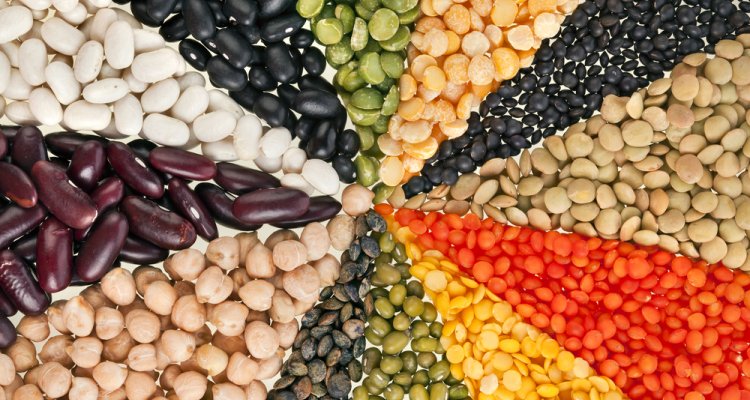
Project
Sustainable Future Proteins
The global population will reach more than 9 billion by 2050, making the global demand for food to double. The project evaluated the nutritional value of sustainably produced proteins in terms of digestibility and immunogenicity.
In this project, the focus has been on the evaluation of the gastro-intestinal (GI) health values, i.e. bio-functional activity, and nutritional quality of currently available proteins for inclusion in the human diet of the future.
To this end, proteins from a variety of protein-suppliers have been analysed for their nutritional qualities and bio-functional properties on metabolism, gut health, immunological tolerance induction, and microbiota ecology, for which state of the art in vitro and in vivo tools have been applied. These tools have been used to evaluate the impact of digestion on the nutritional quality (contents of essential amino acids, degree of digestion, bio-availability) and the health effects (gut-barrier function, and/or interaction with intestinal immune cells) of the various proteins.
A human trial has been performed in which a number of sustainable protein preparations have been tested by human volunteers.
Publications
Scientific journals
Paulus G.M. Jochems, Willem R. Keusters, Twan America, Pascale C.S. Rietveld, Shanna Bastiaan-Net, Lewis Fraser, Yang Li, Koen G.C. Westphal, Johan Garssen, Harry J. Wichers, Jeroen van Bergenhenegouwen and Rosalinde Masereeuw (2020). A combined microphysiological-computational omics approach in dietary protein evaluation. npj Sci. Food 4-22.
Paulus Jochems, Johan Garssen, Pascale Rietveld, Coen Govers, Monic Tomassen, Harry Wichers, Jeroen van Bergenhenegouwen, Rosalinde Masereeuw (2020). Novel dietary proteins selectively affect intestinal health in vitro after Clostridium difficile secreted Toxin A exposures. Nutrients 12-2782 Published online 11 September 2020.
Jitske Jansen, Katja Jansen, Ellen Neven, Ruben Poesen, Amr Othman, Alain van Mil, Joost Sluijter, Javier Sastre Torano, Esther A. Zaal, Celia R. Berkers, Diederik Esser, Harry J. Wichers, Karin van Ede, Majorie van Duursen, Stéphane Burtey, Marianne C. Verhaar, Björn Meijers, Rosalinde Masereeuw (2019). Metabolite-sensing and signaling in kidney proximal tubules stimulates microbiome-derived organic anion secretion. Proc. Natl. Acad. Sci. USA, 116(32): 16105-16110. Published online August 6, 2019.
Paulus G.M. Jochems, Jeroen van Bergenhenegouwen, Anne Metje van Genderen, Sophie T. Eis, Livia Wilod Versprille, Harry Wichers, Prescilla V. Jeurink, Johan Garssen, and Rosalinde Masereeuw (2019). Development and validation of bioengineered intestinal tubules for translational research aimed at safety and efficacy testing of drugs and nutrients. Toxicol. in Vitro 60: 1-11, published online May 6 2019.
Jochems PGM, Garssen J, van Keulen AM, Masereeuw R, Jeurink PV. (2018). Evaluating Human Intestinal Cell Lines for Studying Dietary Protein Absorption. Nutrients 10(3):322.
Non-scientific journals
Baking Europe, Winter 2019, p. 28-32. Protein foods for the elderly. “Seniors are open to eating more plant-based foods”
Discover Magazine March 2019, p. 38-45. Raising the steaks: there are 7.5 billion of us and counting. What’s for Dinner?
The World of Food Ingredients, March 2018, p. 44-46. Feeding the 10 Billion: Sustainable Future Proteins
The World of Food Ingredients, September 2017, p. 70-72. Dietary Protein: Key to Feeding the 10 Billion